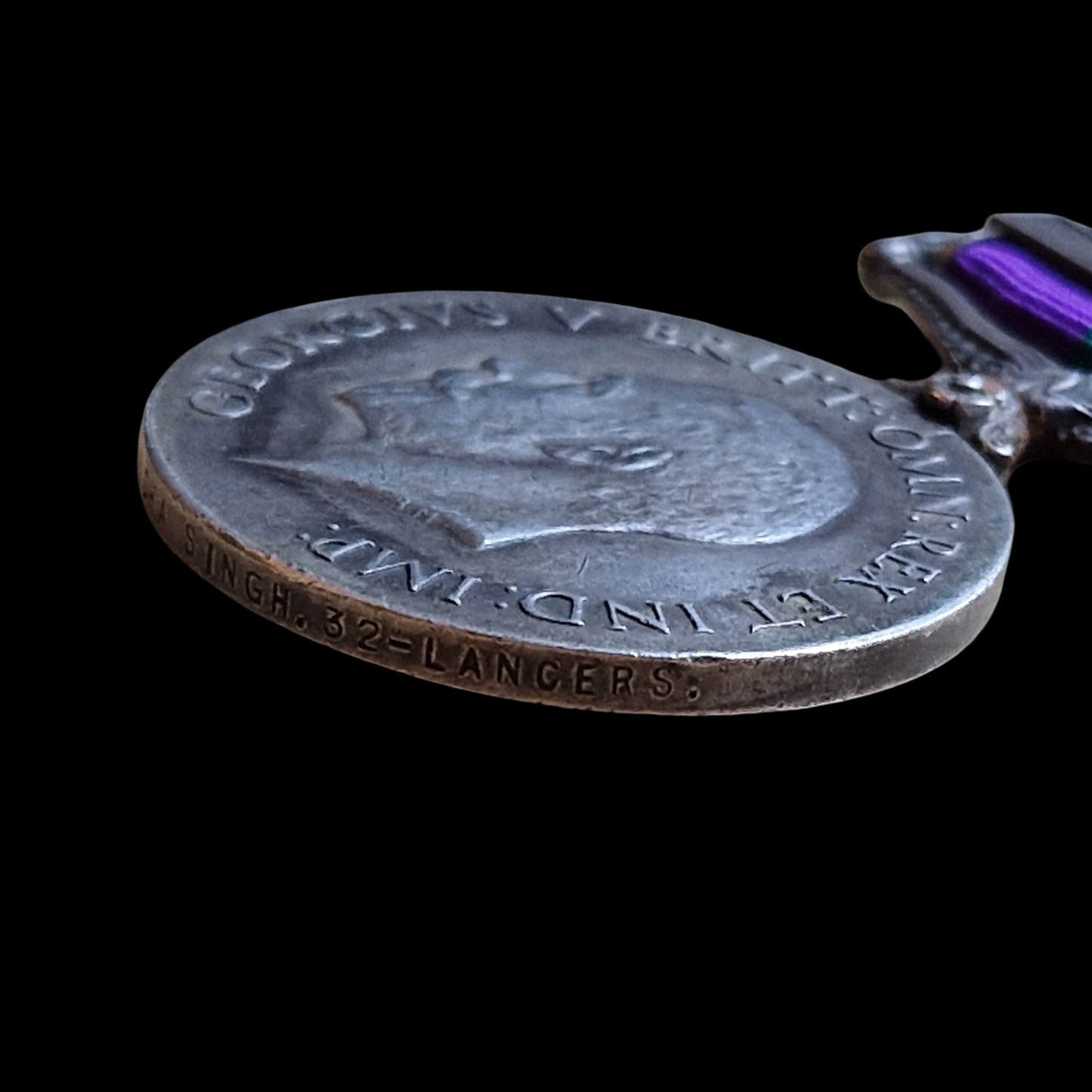





British General Service Medal - Sowar S. Singh, 32nd Lancers, British Indian Cavalry
General Service Medal 1918-62. GV first issue clasp 'Iraq' - 3460 SOWAR SARDHA SINGH. 32-LANCERS.
Sowar Sardha Singh, service number 3460, served in the 32nd Lancers, one of the Indian cavalry regiments deployed by the British to Mesopotamia in the aftermath of the First World War. His entitlement to the General Service Medal (1918-62) with clasp “IRAQ” confirms his presence in the country during the period of the 1920 Iraqi Revolt, the major armed uprising against British rule which followed the collapse of Ottoman control and the establishment of the British Mandate.
The Iraq clasp was awarded only to those who served in clearly defined operational conditions: men present at or north of Ramadi between 10 December 1919 and 20 June 1920, or on the establishment of a unit within the borders of Iraq between 1 July and 17 November 1920. The award therefore places Singh directly within the British and Indian Army forces involved in the suppression of the revolt, rather than in the administrative garrison that followed. The revolt, which began with mass demonstrations in Baghdad, rapidly escalated into a widespread tribal and religious uprising along the Euphrates, with both Shia and Sunni groups cooperating in an attempt to drive out British control and establish an independent Arab government. Within weeks, British positions west and south of Baghdad were under serious pressure, and mounted Indian cavalry such as the 32nd Lancers were essential for reconnaissance, patrol duties, convoy escort, and rapid reaction to tribal attacks on isolated posts and supply columns.
The 32nd Lancers were among the cavalry units assigned to the 17th Division and Lines of Communication Troops, operating along the key desert and river routes between Ramadi, Baghdad, and Hillah. Their role was to protect the vulnerable arteries that kept the imperial forces supplied, pursue raiding groups after Royal Air Force bombing strikes, and support infantry columns in punitive operations during the height of the revolt in July–October 1920. The use of Indian cavalry in mobile detachments was a critical part of British strategy, especially where armoured cars and infantry were unable to move across broken or waterless terrain. By the end of the campaign, British and Indian losses numbered around 500 killed, while somewhere between 6,000 and 10,000 Iraqis had died; RAF squadrons alone dropped almost 100 tons of bombs on rebel-held towns and positions.
The revolt was finally suppressed by late 1920, but only after the British had been forced to recognise that direct rule was both politically impossible and financially ruinous. It led immediately to the Cairo Conference of 1921, the installation of Faisal ibn Hussein as King of Iraq, and the policy shift from occupation to indirect rule. The clasp on Singh’s medal therefore marks not only military service, but participation in the last major colonial campaign fought by the Indian Army before the inter-war reorganisation.
Little survives in named records for other ranks of the Indian cavalry, but the medal itself confirms that Sardha Singh was a mounted trooper actively serving during one of the most important and costly imperial campaigns of the post-WW1 era, at the point where British policy in the Middle East was forced to change by force of arms. His medal is one of the classic issues to the Indian Army for the Iraq operations of 1919–20, and represents the service of men whose names rarely appear in official histories, despite their central role in the campaign.
PLEASE NOTE: All research will be sent to the buyer via email. I am unable to provide printed copies, as I do not have access to a printer.
AJMS Medals





